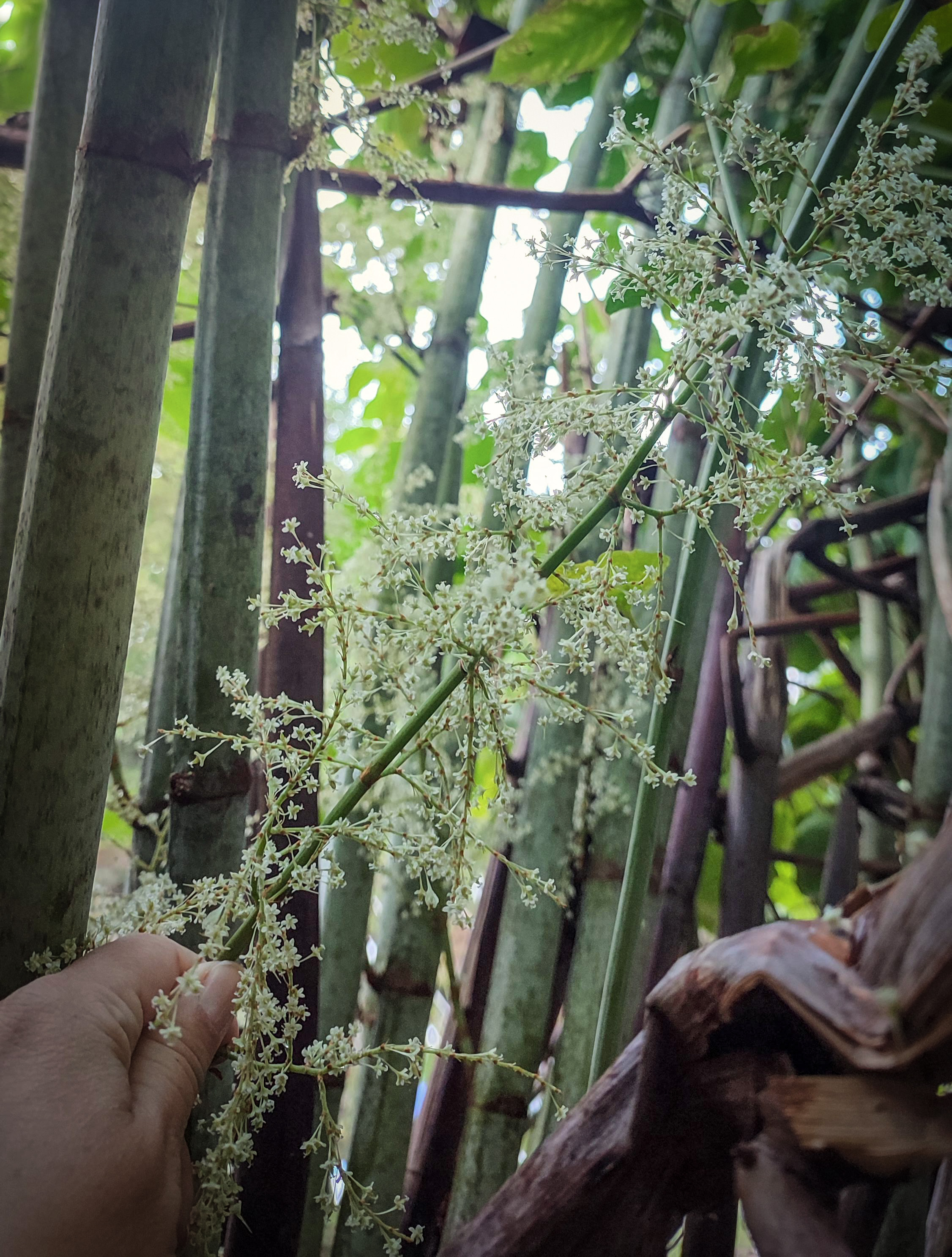Preparations for the upcoming two-day specialist seminar, scheduled for November 11–12, 2025 in Hrubá Voda (Hotel Hluboký dvůr), began directly in the field. The research team documented the occurrence of knotweed, one of the most problematic invasive plants in Europe. Seminar participants will therefore have a unique opportunity to learn about this species not only in theory, but also directly in nature. The program will include an introduction to its ecological traits, methods of spreading, and concrete impacts on biodiversity.

Knotweed (Fallopia spp.) is a textbook example of an invasive plant: it spreads rapidly, displaces native species, and leads to the impoverishment of local ecosystems. Without active measures, it can take over large areas within a few years and cause irreversible changes in natural habitats. Its resilience and ability to thrive even in challenging conditions make it a strong “opponent” to native vegetation.
This issue is also addressed by the project Interreg SK-CZ – Supporting Biodiversity through Eradication of Invasive Plants with Energy Use (ITMS NFP403201DXT7). The project connects nature conservation with innovative technologies, seeking effective ways to control knotweed while also exploring the potential use of its biomass as a renewable energy source. This approach shows that even an invasive species can be seen not only as a threat, but also as a potential resource that can be integrated into sustainable management.
.jpg?attachmentId=4765&image=true)
Our research activities therefore combine two goals: protecting natural habitats and biodiversity, while also testing practical ways to turn an ecological problem into a useful opportunity.
“I see knotweed not only as a threat to biodiversity, but also as a potential resource that can be put to meaningful use. If we manage to balance its eradication with its energy recovery, we can turn an ecological problem into an opportunity,” said Marcel Mikeska, one of the project’s researchers.
Details about the seminar program and registration will be announced soon.
